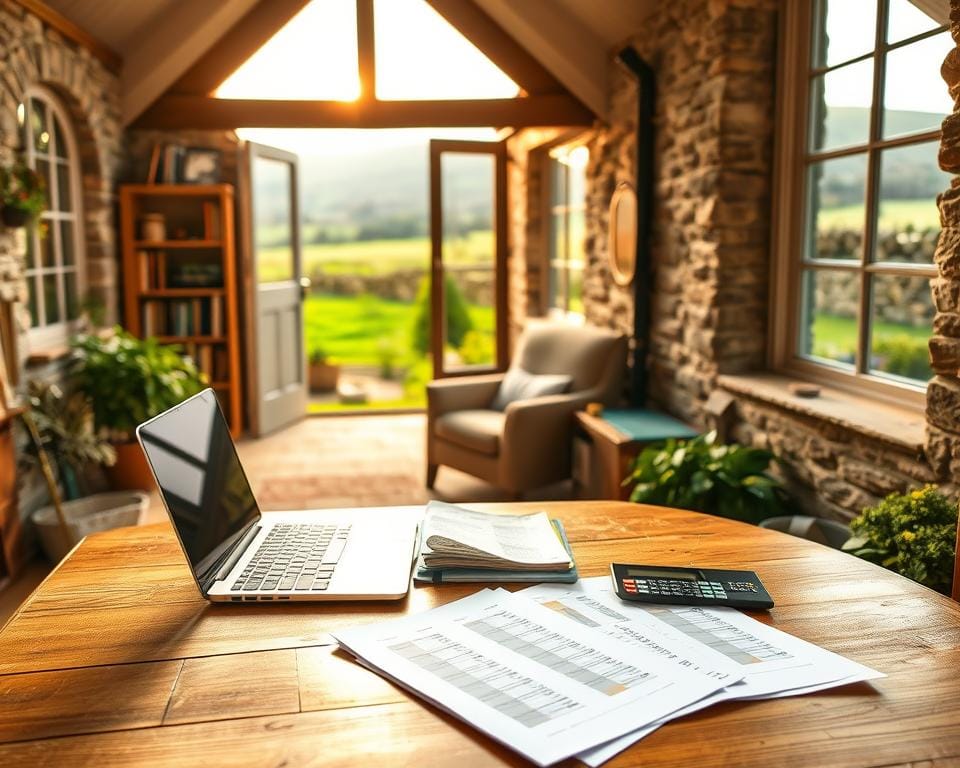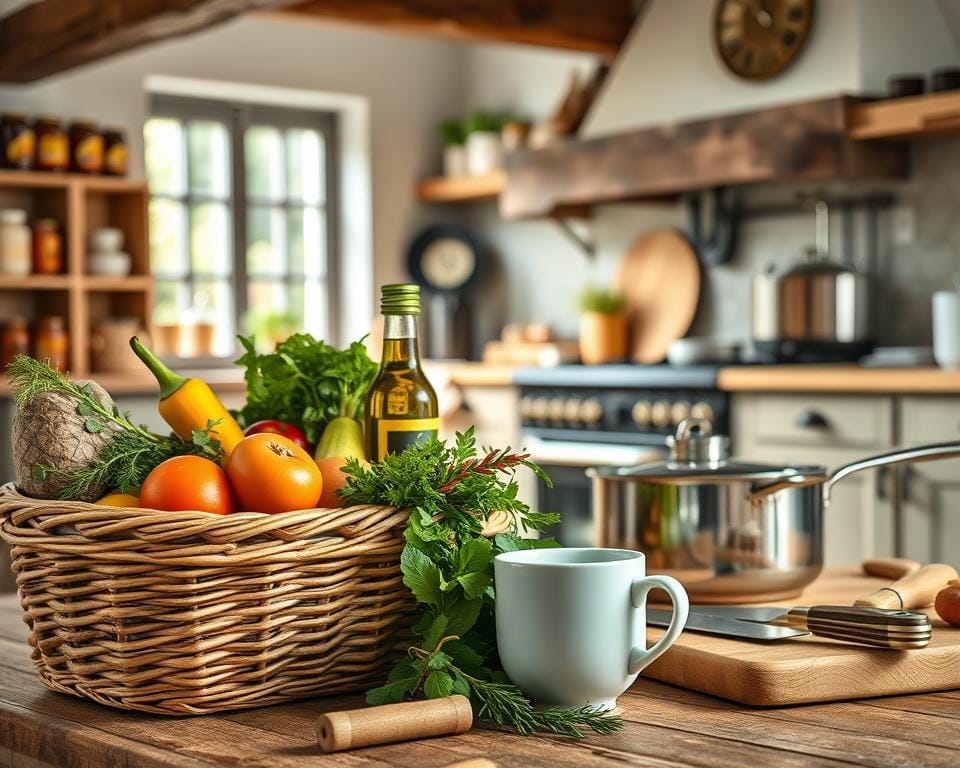Ever wondered why some travellers return from cottage breaks glowing with contentment while others feel they’ve barely switched off? The difference often lies in tailoring your approach to this uniquely personal style of escape.
Over the years, I’ve discovered that successful stays in self-catered properties aren’t about meticulous itineraries – they’re about harmonising preparation with freedom. Unlike chain hotels, these hidden gems across our green-and-pleasant land let you set the rhythm of your days. Fancy pancakes at noon or moonlit coastal walks? That’s the beauty of having your own front door key.
Through trial and error, I’ve learnt that the magic happens when you balance must-see spots with empty hours for serendipity. Whether it’s a thatched 17th-century hideaway or a modern eco-lodge, the right choice becomes your personal sanctuary. The trick is knowing what questions to ask before booking – and what to leave to chance once you arrive.
Key Takeaways
- Self-catered stays now rival overseas trips for UK travellers seeking authentic experiences
- Flexibility with meal times and activities enhances relaxation more than rigid schedules
- Mixing planned excursions with unplanned discoveries creates lasting memories
- Property research should prioritise location quirks over generic amenities lists
- Digital detox opportunities increase when you’re not sharing spaces with other guests
Select the Perfect Cottage That Feels Like Home
Choosing where to unpack your suitcase matters more than you’d imagine – it’s where holiday magic either blossoms or fizzles. I treat cottage selection like matchmaking: the right property should mirror your travel personality while cushioning you from life’s little stresses.
Evaluating Amenities and Location
My first rule? Never assume all kitchens are created equal. I once arrived to find a “fully equipped” space with exactly three saucepans. Now I grill owners about coffee makers and sharp knives. Location quirks matter too – a cottage near coastal paths saves hours of driving to destinations.
I prioritise properties balancing convenience with character. That might mean farm shops within walking distance but zero traffic noise. Always check what’s genuinely nearby, not just “10 minutes drive” claims. Proximity to pubs or beaches often trumps fancy interiors.
Checking Pet-Friendliness and Comfort
Travelling with furry friends? Don’t just glance at the “pets allowed” tickbox. I’ve learnt to ask about secure gardens and nearby walking routes. Some cottages charge £25 per pet while others include dog beds and treats.
| Feature | Pet-Friendly | Not Pet-Friendly |
|---|---|---|
| Dedicated dog areas | ✓ | ✗ |
| Extra cleaning fees | Usually | Rarely |
| Near walking routes | Common | Occasional |
| Hot tubs/swimming pools | 40% allow | 75% allow |
Comfort extends beyond pets. I always zoom in on bedding photos – scratchy sheets ruin home-from-home vibes. And yes, even in rural locations, decent Wi-Fi matters when you need next-day rain plans.
Planning a Cottage Holiday UK: Essential Steps
Nothing derails a getaway faster than budget surprises or cramped quarters – here’s how I sidestep those pitfalls. Early money talks with travel mates prevent awkwardness later. My golden rule? Lock down numbers before browsing listings.
Setting Your Budget and Dates

I start by dividing my total spend into accommodation, meals, and activities. Properties often require weekly bookings, usually Friday-to-Friday. Term-time stays slash costs – 39 cheaper weeks versus 13 pricey school breaks.
| Factor | Term-Time | School Holidays |
|---|---|---|
| Average nightly rate | £120 | £210 |
| Availability | High | Low |
| Booking lead time | 2-4 weeks | 3-6 months |
| Group discounts | Common | Rare |
Deciding on the Number of Rooms and Needs
Sleeping arrangements make or break group dynamics. I map out bed preferences first – night owls versus early risers often need separate spaces. Larger properties sometimes cost less per person than compact ones.
Last year, six of us saved 30% by choosing a four-bedroom farmhouse over three doubles. Always verify bathroom counts in listings – that “2 bathrooms” might mean one is just a loo!
Making the Most of On-Site Amenities and Outdoor Spaces
There’s a special kind of joy in discovering your temporary home’s hidden treasures – those little luxuries that turn a good break into a great one. I’ve found that taking full advantage of what’s right outside your door often creates the most authentic holiday moments.
Enjoying Hot Tubs, Swimming Pools and Game Rooms
Steam rising from a wood-fired tub under starry skies? Pure magic. I always take advantage of these features early – there’s no better way to shake off arrival stress. For shared pools, I book morning slots when water’s freshly filtered.
Game rooms aren’t just for rainy days. Last summer, our nightly table tennis tournaments became hilarious highlights. Pro tip: check if properties provide balls/paddles – I now pack spares after a memorable hunt for shop-bought replacements!
Embracing Countryside Walks and Outdoor Dining
Footpaths winding through fields beat treadmill views any day. I make sure to explore at different times – dawn walks reveal wildlife, while sunset ramps up the romance factor. Many cottages provide OS maps – gold dust for planning routes.
Al fresco meals transform simple suppers into events. If there’s a barbecue, I grab local sausages from farm shops. Foldable chairs and fairy lights from home elevate any outdoor space instantly. Just watch for curious sheep!
Exploring Local Attractions and Activities
Uncovering a region’s personality transforms a good holiday into an unforgettable one. I’ve learnt that blending must-see destinations with off-radar finds creates the perfect rhythm for discovery.
Discovering Nearby Walks, Pubs and Beaches
Footpaths become storytellers here. Coastal walks reveal tidal secrets, while country trails wind past grazing sheep. I always ask owners about their favourite routes – that’s how I found a smugglers’ cove in Cornwall last autumn.
Village pubs often double as local museums. Chatting with regulars at the bar led me to a hidden waterfall in Snowdonia. For seaside activities, timing matters: low tide unlocks rock pools teeming with life.
| Coastal Stays | Countryside Stays |
|---|---|
| Beachcombing | Forest trails |
| Seafood shacks | Farm shops |
| Lighthouse visits | Village fetes |
| Tide timetable essential | Wellies recommended |
Finding Local Shops and Cultural Gems
Independent shops offer more than supplies – they’re gateways to community spirit. I’ve tasted rare cheeses in Cumbrian delis and bought hand-thrown pottery in Devon workshops.
Museums needn’t be dusty affairs. Interactive displays at Drusillas Park delighted both kids and adults during a rainy afternoon. For evening activities, check village noticeboards – amateur theatre nights often rival West End productions!
The magic lies in leaving room for surprises. That unplanned stop at a sunflower farm? It became our holiday’s highlight reel.
Organising Group Events and Celebrations
Gathering loved ones in a cosy retreat creates magic, but requires some clever orchestration. Through trial and error, I’ve discovered that successful group stays thrive on early alignment and thoughtful compromises. The secret lies in balancing structure with spontaneity.
Co-ordinating Dates and Group Preferences
Locking in dates feels like herding cats with multiple families. I now start discussions six months ahead, using shared calendars. Mid-week dates often work better than weekends for availability and cost.
Central locations cut travel headaches. Last year, a Peak District cottage equidistant from three cities meant no one drove over two hours. Always check parking spaces match guest numbers – nobody wants a Tetris-style car shuffle!
Managing Budget, Catering and Entertainment Options
Transparent money talks prevent awkwardness. I create a shared spreadsheet showing costs per family. Many properties offer bulk-buy discounts for longer stays – we saved 15% booking eight nights instead of seven.
For meals, mixing approaches works best:
- Pre-order meat boxes from nearby farms
- Book a private chef for one special night
- Rotate cooking teams among friends
Entertainment needs vary. I pack a “fun box” with board games and garden toys. Local service providers often deliver activities like cocktail workshops – perfect for adult party vibes.
The effort pays off when you see three generations laughing over burnt sausages. Those messy, joyful moments become lots of shared stories for years.
Preparing Your Self-Catering Essentials
Mastering self-catering turns your temporary nest into a proper home-from-home. I’ve found that smart kitchen prep saves money while freeing up time for adventures – it’s about working smarter, not harder.

Stocking Up on Groceries for a Relaxed Stay
My golden rule? Shop like you’re feeding a ship’s crew. I create two lists: essentials for the first 24 hours (milk, bread, eggs) and bulk items for later meals. Most supermarkets deliver to rural postcodes – slot your order for arrival an hour after check-in.
Local farm shops often stock surprises. In Yorkshire, I discovered black garlic chutney that became our breakfast staple. Always check what the property provides – some leave basics like oil or herbs, saving you £10-£15.
Utilising Fully Equipped Kitchens to Save Money
That fancy range cooker isn’t just for show. Batch-cooking bolognese on day one means quick dinners after long walks. I’ve calculated that cooking breakfasts and lunches saves 65% compared to café meals for a family of four.
Balance is key. We’ll do simple pasta nights but splurge on one special restaurant meal. Pro tip: pack your favourite coffee pods – rural shops rarely stock niche brands. Those £4 lattes add up quickly!
Considering Travel, Accessibility and Local Services
Navigating travel logistics transforms a potentially stressful journey into part of the adventure. I’ve learnt that smart preparation ensures you arrive relaxed, ready to enjoy your hideaway from day one.
Checking Transport Options and Accessibility
Remote locations charm with isolation but challenge with access. I always verify parking spaces match our group size – nothing sours a trip like playing musical cars on narrow lanes. For older properties, step-free access isn’t guaranteed – a quick call to the management team clarifies this.
Train travel works beautifully if you plan transfers. Local taxi services often book up fast – I secure these when confirming accommodation. Mobility needs vary: one friend requires wide doorways, another needs shower seats. Detailed questions prevent unpleasant surprises.
Arranging Car Hire or Train Journeys for Convenience
Rental cars become essential in countryside stays. Booking through cottage websites sometimes unlocks discounts – I saved £78 last autumn using a partner service. Always check mileage limits and fuel policies to avoid hidden fees.
Train journeys offer scenic relaxation if you:
- Pack light with wheeled luggage
- Book advance tickets for best prices
- Confirm station pickup arrangements
Final checks matter. I cross-reference booking confirmations for linen inclusions and kitchen basics. One couples’ break nearly derailed when we assumed towels were provided – now I triple-check every list!
Conclusion
Through countless escapes to hidden lanes and coastal paths, I’ve found cottage holidays offer something no hotel ever could – the freedom to craft your own rhythm. The magic lies in balancing careful prep with spontaneous adventures. Whether it’s your first booking or fiftieth, that sweet spot between research and relaxation remains key.
Our staycation boom has transformed these getaways into art forms. Modern cottages now blend luxury with rustic charm – think underfloor heating in stone barns or pizza ovens in shepherd’s huts. Yet the core appeal stays timeless: waking to birdsong, not alarm clocks.
If you’re planning summer breaks, make sure to book well ahead. But don’t overlook autumn’s golden light or winter’s crackling fires. Off-peak stays often reveal a region’s true personality, with empty beaches and cosy pub corners all to yourself.
The best holiday memories? They’re usually unscripted moments – impromptu picnics, stumbled-upon footpaths, that perfect village bakery. My top tip? Leave space for serendipity alongside your must-see lists. With the right mix, you’ll create stories that outlast any souvenir.
New locations await every year, each cottage its own character. Whether chasing coastal breezes or countryside calm, these escapes remind us adventure sits right on our doorstep. Pack your boots, embrace the unknown, and let your next chapter begin.

